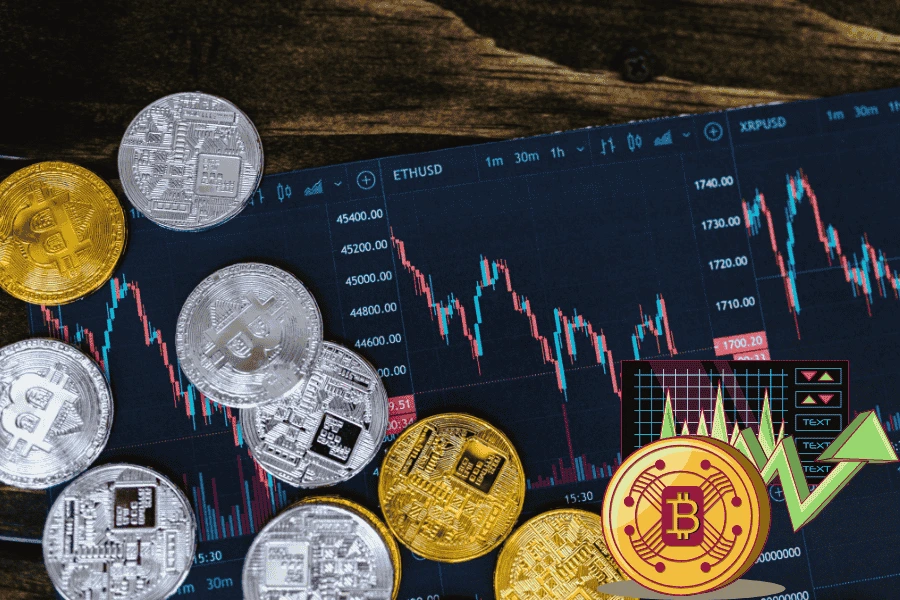Python's Impact on Cryptocurrency Trading and Analytics
Python has had a profound impact on cryptocurrency trading and analytics by offering powerful tools and libraries that enable traders, analysts, and developers to build sophisticated trading systems, analyze market data, and automate decision-making. One of the primary reasons Python is so effective in this space is its rich ecosystem of libraries such as pandas, NumPy, and matplotlib, which are invaluable for handling large datasets, conducting technical analysis, and visualizing market trends. With libraries like ccxt and Finance API, Python allows seamless integration with various cryptocurrency exchanges, enabling real-time data collection, automated trading strategies, and backtesting of trading algorithms. Furthermore, Python’s machine learning frameworks, such as scikit-learn, TensorFlow, and PyTorch, allow traders to apply AI-driven techniques for predictive analytics, sentiment analysis, and pattern recognition.

How Python Helps in Crypto Trading
Automated Trading Bots: Python can be used to build bots that buy or sell cryptocurrencies automatically based on certain rules. These bots can trade 24/7, even when you are sleeping. They use real-time data to make smart decisions fast—much faster than a human could.
Market Analysis: Python helps traders analyze large amounts of data quickly. By using libraries like pandas and numpy, you can study price movements, find patterns, and predict future trends. This helps traders make smarter choices instead of guessing.
Price Alerts and Notifications: With Python, you can set up scripts that watch the market for you. For example, if Bitcoin's price drops below a certain point, a Python program can send you an email or text alert.
Backtesting Trading Strategies: Before using a new trading strategy, it's important to test it. Python allows you to run "backtests" — simulations using old market data to see if your strategy would have worked. This can save you from losing money.
Connecting to Exchanges: Python can easily connect to popular crypto exchanges like Binance, Coinbase, and Kraken through APIs (Application Programming Interfaces). This lets bots and apps place trades, check balances, and pull market data automatically.
Why Python is the Best Choice
Python is widely regarded as one of the best choices for blockchain and AI development due to its simplicity, versatility, and strong ecosystem. First, Python’s easy-to-learn syntax allows developers to rapidly prototype, test, and deploy blockchain applications or AI models without the steep learning curve associated with other languages. This makes it an ideal option for both beginners and experienced developers. Python also boasts an extensive library ecosystem that includes powerful tools for blockchain (such as web3.py, Brownie, and pycryptodome) and AI (including frameworks like TensorFlow, PyTorch, and scikit-learn). These libraries provide pre-built functions and algorithms that accelerate development and ensure scalability. Furthermore, Python's integration capabilities with other technologies, such as Ethereum for blockchain or TensorFlow for AI, make it highly adaptable for various use cases, enabling seamless communication between systems.
Conclusion
In conclusion, Python’s combination of simplicity, powerful libraries, and strong community support makes it the optimal choice for developing blockchain applications and AI solutions. Its versatility enables developers to efficiently build secure, scalable, and transparent blockchain systems, while also offering the tools needed for advanced AI model development and data analysis. Whether you're creating decentralized applications, deploying smart contracts, or designing machine learning algorithms, Python provides the necessary resources to accelerate development and ensure success. As both blockchain and AI continue to evolve, Python’s flexibility and extensive ecosystem will remain a key enabler in shaping the future of these transformative technologies.
- Lejhro bootcamp https://www.bootcamp.lejhro.com/data-science-course-training And
- https://www.bootcamp.lejhro.com/full-stack-development-course-training in just eight weeks.
Active Events
Data Scientist Challenges One Should Avoid
Date: August 14, 2024 | 7:00 PM (IST)
7:00 PM (IST) - 8:10 PM (IST)
2753 people have registered
Your Data Science Career Game-Changing in 2024: Explore Trends and Opportunities
Date: Aug 08, 2025 | 7:00 PM (IST)
7:00 PM (IST) - 8:10 PM (IST)
2811 people have registered
Bootcamps
Data Analytics Bootcamp
- Duration:8 weeks
- Start Date:October 5, 2024
Data Science Bootcamp
- Duration:8 weeks
- Start Date:October 5, 2024
